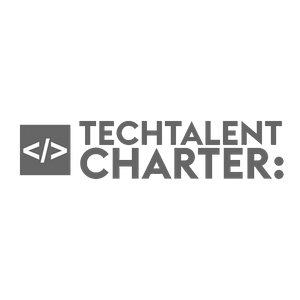How can we improve social mobility in the tech sector?

techUK is a founding Signatory of the Tech Talent Charter (TTC) - a commitment by organisations to a set of undertakings that aim to deliver greater inclusion and diversity in the tech workforce of the UK, one that better reflects the make-up of the population.
The importance of this discussion
Inclusive Boards estimates that in the UK tech sector, 19% of workers are from a working-class background compared to 33.3% of the nationwide population (2014 Labour Force Survey). In contrast, those with parents from a professional-managerial background make up 45% of workers in the sector compared to 31.2% of the nationwide population. The extent of the socio-economic diversity challenge in the tech sector is symbolised by the average class pay gap of £4,736. This means that when individuals from working-class origins enter the sector, they can expect to earn £4,736 less than their peers from more privileged backgrounds with the same education, experience and training. Broadening access to opportunities available is crucial if we are to break down barriers in the workplace and improve social mobility in tech.
Initiatives to support social mobility
Boosting representation from diverse social backgrounds is a powerful tool for employers when looking to recruit, attract and retain talent. A TTC Signatory, KPMG, recognise this and in 2016 it became the first firm in the UK to publish comprehensive data analysing the socio-economic profile of its workforce. It was the first business in the UK to publish such comprehensive data, including employees’ parental occupation and education and the type of school employees attended. KPMG also included graduate and school leaver socio-economic data from the past three years.
Work Ready is KPMG’s education programme to reduce geographical disadvantage by increasing skills, confidence and general career aspirations in social mobility coldspots. Using an algorithm-based tool, the firm targets the most disadvantaged schools and delivers day-long workshops to students in years 9 and 10. Workshops are followed by an extensive support programme, focused on developing listening, speaking, problem solving, creativity, staying positive, aiming high, leadership and teamwork skills. Each year the firm supports 2,000 students. In 2019 it reached its 10,000th young person.
TTC’s Diversity in Tech 2020 report, which annually tracks diversity in technology across the UK, found that 35% of TTC Signatories have been focusing on initiatives aimed at those in pre-18 education. Of the organisations that are running initiatives designed to improve inclusion and diversity in tech, 95% are running initiatives that target the working age population. Signatories clearly understand this is a systemic problem and that they need to act to produce change that does not immediately and directly feed into their own talent metrics but enables a diverse future talent pipeline.
In addition to programmes focusing on young people, there is more that businesses and the wider tech industry can do to combat entrenched inequalities and elevate opportunities:
- Begin with data - track the social mobility of your workforce. Consistent collection and analysis of data enables organisations to understand the current situation, indicate opportunities for action and measure change.
- A shared narrative about why socio-economic diversity is important to your business with clear and visible commitment at senior levels.
- Showcase diverse role models - ‘you can’t be what you can’t see’
- Hiring practices which emphasise competence rather than qualifications. By demanding educational credentials that are not necessary for performing a job, recruiters and hiring managers may exacerbate social class disadvantage.
- Social mobility isn’t just about who gets in, it’s also about who gets on. Look at progression rates to ensure that talent does not get ‘stuck’ at lower rungs of the organisation.
To find out more about how to become a more inclusive employer in tech, please visit the TTC's Open Playbook.
TTC Signatories on the Social Mobility Employer Index
Now in its fourth year, the Social Mobility Employer Index from the Social Mobility Foundation has become the leading authority on employer best practice in the field of social mobility. The Index is an important bench-marking initiative that ranks Britain’s employers on the actions they are taking to ensure they are open to accessing and progressing talent from all backgrounds and it showcases progress towards improving social mobility. Many of TTC’s Signatories rank in the top 75 companies in the Social Mobility Employer Index, including Accenture, Bank of England, BBC, Fujitsu, FDM Group, Fujitsu, Linklaters LLP, Superdrug and more.
2021 steps
TTC's next Open Playbook hackathon will take place in Spring and one team of subject matter experts will focus on social mobility in tech to create new content for Signatories. The TTC are also partnering with Lloyds Banking Group to work on social mobility together. techUK is a proud strategic partner and sponsor of the TTC and looks forward to continuing to work at scale, addressing the tech ecosystem as a whole to drive change.



